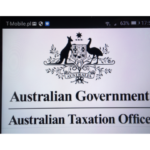Social Media Influencers Under Investigation for Fraud

Australia’s securities regulator, the Australian Securities and Investment Commission, or ASIC, is investigating more than 100 ‘influential’ social media accounts over reports of misleading and false advertising that has cost those who buy in millions, and could amount to the criminal offence of fraud, also known as obtaining a benefit by deception.
Various platforms
The ‘influencers’ are regularly active on TikTok, YouTube and Instagram, as well as Snapchat, Facebook and Twitch.
They offer a range of products and services – anything from beauty, lifestyle, parenting and fashion to financial information – and the investigation is focusing on claims that sponsorships and affiliations are not being disclosed, as required by law, and that consumers are being deceived into believing endorsements are independent and impartial, when those who control the accounts are actually benefiting financially from items, services, programs and subscriptions purchased.
The investigation follows a similar crackdown in the United States by the Securities and Exchange Commission (SEC) which fined several celebrities, including influencer Kim Kardashian who was fined $1.26 million last year for promoting a crypto token without disclosing she was paid a large sum of money for the endorsement.
Finfluencers
ASIC is particularly concerned about ‘finfluencers’ – financial influencers, who can use their position of trust to endorse and promote schemes that can result in individuals losing large sums of money by investing into shady financial schemes.
Statistics published by Australia’s consumer watchdog, the Australian Competition and Consumer Commission, or ACCC, Australia’s consumer watchdog – suggest that Australians lost nearly $300 million to scams in the first half of 2022 – a figure close to double the amount lost over the same months in 2021.
Blurred lines
Of course, online scams are becoming more sophisticated, and more prevalent, but the lines between information and ‘edutainment’ are also becoming increasingly blurred.
ASIC’s investigation into finfluencers was also based on the fact that a 2021 survey of young people showed that 28 percent of people aged between 18-21 follow at least one influencer on social media, and 64 percent reported that their behaviour has changed as a result of content produced by finfluencer. Alarmingly, some of these finfluencers are not licensed to give financial advice.
There are significant penalties for financial advisors who do not comply with the AFSL requirements under the Corporations Act 2001 (Cth) (Act).
ATO warns those who use fake businesses to commit tax fraud
Last year, the Australian Tax Office, or ATO, warned the tens of thousands of Australians who followed advice to create fake businesses and submit false activity statements in order to claim GST refunds that this amounts to a criminal offence across Australia – namely, dishonestly obtaining a financial advantage from a Commonwealth entity by deception, also known as tax fraud.
Many of those investigated claimed they were not aware the conduct was unlawful, but the ATO was quick to point out that ignorance is never a defence to a criminal charge.
Social media companies need to be more accountable
There is additional pressure on social media companies and online platforms to clean up content too. Last month the Australian Federal Government announced that Australian Communications and Media Authority, or ACMA, will be given new powers to be able to enact an enforceable industry code against online misinformation if industry self-regulation measures prove insufficient.
Currently, online platforms and social media companies are expected to ‘police themselves’ and they don’t have a sterling track record – increasingly there are complaints about content or the comments and interaction by other online users.
It’s not entirely clear what Acma’s new powers look like, but the fact that regulators are considering them is timely. Fake social media accounts are common and misinformation online is rife and are only likely to get worse with advances of Artificial Intelligence (AI) which makes it incredibly easy to create fake anything – emails, reviews, bot conversations, images – and is already beginning to flood media and social media and online platforms with phoney or even fraudulent information.
There is certainly an urgent need for better mechanisms for detection and regulation. But even the best regulations cannot replace discernment.
One of the issues with regulation is that it can, if unchecked, lead to over-regulation – which has the potential to encroach on personal freedoms and contribute to the erosion of democracy.
Ordinary everyday Australians need, now more than ever, to remember the old caveat: “buyer beware.”
If something sounds too good to be true, then it probably is. And, as technology advances, regulation as well as discernment are required.







